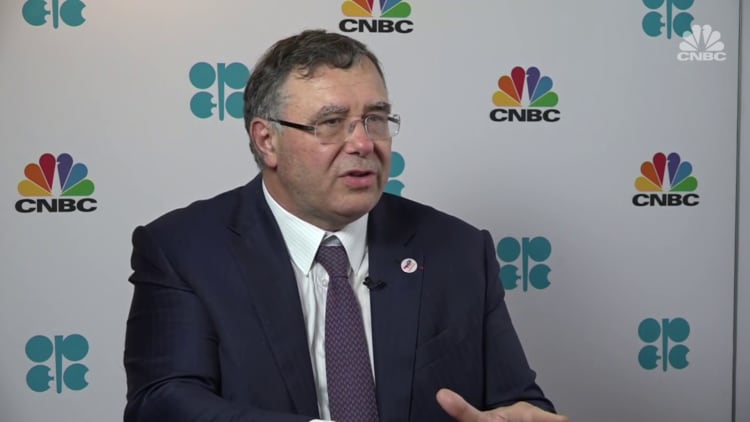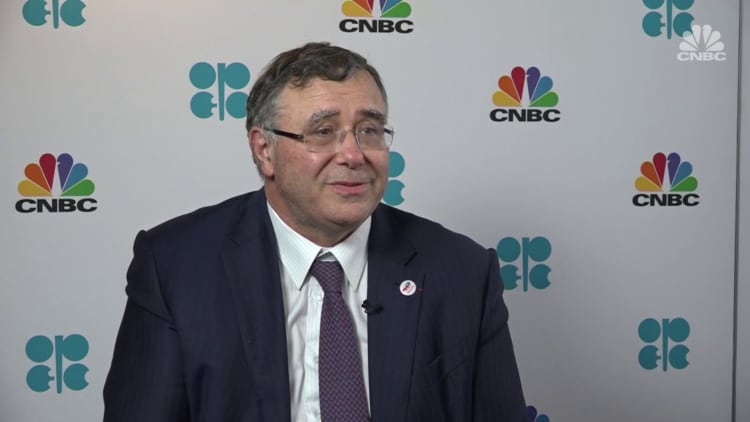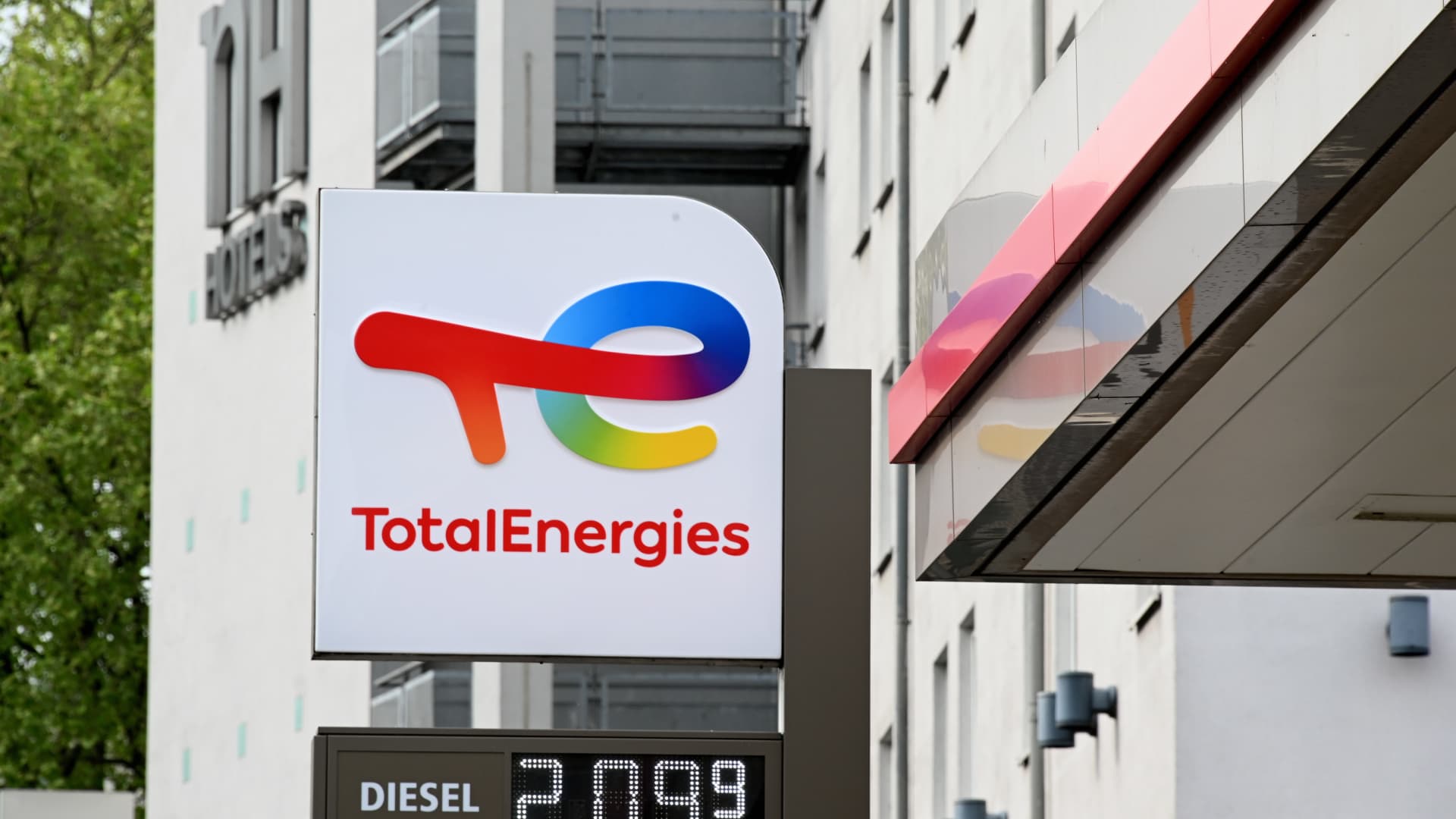
The chief executive of TotalEnergies defended the firm’s greenhouse gas emissions strategy, saying the company remains committed to oil and gas despite repeated warnings that increasing fossil fuel production will only make matters worse.
Speaking to CNBC’s Dan Murphy in Vienna, Austria on the sidelines of an OPEC conference, TotalEnergies CEO Patrick Pouyanne said Wednesday that the company had allocated nearly one-third of its capital expenditure to low-carbon technologies, with the remainder spent on oil and gas.
“We are in both pillars, and we will remain on both pillars [for a long time],” Pouyanne said.
“Today, our society requires oil and gas … Why we are together, it is 80% of fossil fuels. There is no way to think that overnight we can just eliminate all that and rely only on 10% of low-carbon energy. It will take decades to build a new system,” he added.
“So, we must do two things: To continue to produce the oil and gas, [while] of course being very strict on the emissions. The question is not fossil fuels, it is emissions, to lower the emissions.”
His comments come just over one month after French riot police fired tear gas at hundreds of climate activists trying to prevent the firm’s annual general meeting. Activist groups had pledged to try to stop the shareholder meeting from taking place to denounce the group’s fossil fuel expansion plans.
TotalEnergies CEO Patrick Pouyanne said the company had allocated nearly one-third of its capital expenditure to low-carbon technologies, with the remainder spent on oil and gas.
Picture Alliance | Picture Alliance | Getty Images
The burning of fossil fuels, such as oil and gas, is the chief driver of the climate emergency. The world’s leading climate scientists, collated by the U.N.’s Intergovernmental Panel on Climate Change, have said tackling the crisis requires “immediate and deep emissions reductions across all sectors.”
The IPCC’s message, which was approved by governments across the globe, underscored the need for a substantial reduction in fossil fuel use to curb global heating, now at 1.1 degrees Celsius above pre-industrial levels.
U.N. chief Antonio Guterres, meanwhile, has warned that investing in new fossil fuel infrastructure is “moral and economic madness” and such investments will come to be seen as “a blot on the landscape and a blight on investment portfolios.”
‘Huge challenge’
TotalEnergies’ Pouyanne acknowledged criticism from climate campaigners that the company has not moved quickly enough to accelerate the energy transition, but said the “huge challenge” was to reconcile the security of supply with affordability and sustainability.
“If we don’t invest enough, the [oil] price will not be $75 per barrel, it will be $150 or $200 and all consumers will be super unhappy and our life will be a nightmare,” Pouyanne said.
“So … producing with strict new standards demonstrating that we can produce oil and gas in a very smart way with lower emissions. At the same, we invest in the new low-carbon energy, and we do it in a large way.”

He described the spike in energy prices in 2022 as a “catastrophe” following Russia’s full-scale invasion of Ukraine.
“So, let’s keep this balanced. It’s difficult. I know the scientists told us you should forget [fossil fuels] — but life is like it is. We must make that transition at the pace which can be accepted by the society. That’s also one condition of the success.”
Oil industry should set carbon targets at COP28
The protest at TotalEnergies’ AGM on May 26 came at a time of palpable frustration among climate activists during the proxy voting season, with demonstrations also taking place at British oil majors BP and Shell after an extraordinary run of record profits across the industry.
Investors at TotalEnergies’ shareholder meeting ultimately rejected an activist resolution calling on the company to

